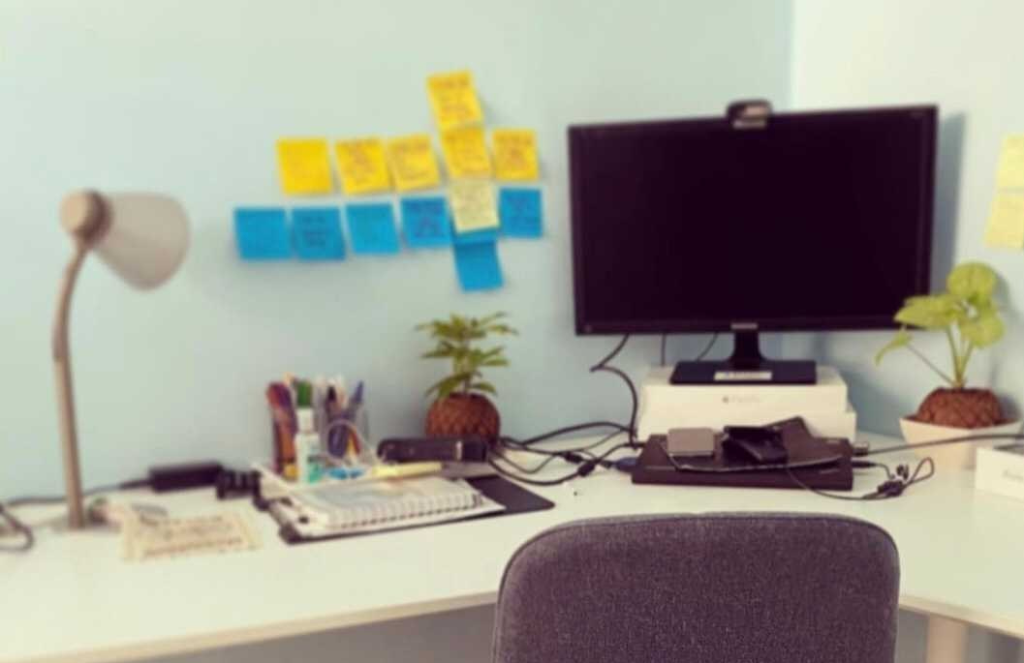Remote workers Q&A: How do you plan your workweek? With engineer Zaki
I’m excited to introduce you to our new series: “Remote Workers Q&A”! In these series, I will discuss topics regarding remote work with a group of remote workers from different backgrounds. It will be interesting to read about their experiences and different tips and ideas about how we can make the best of remote work.
For the first part of the series we will talk about planning and routine when working from home: one of the first things a new remote worker will notice, is very different compared to working at an office. I’ve interviewed my coworker Zaki, we work at traditionally remote company Xoxzo. Being quite new to remote work myself, I’m interested to find out how he manages his schedule.

Name: Zaki Remote worker for 6 years Job: Engineer “Used to be a breaker and now learns how to be a builder, Zaki has long journey in application security. And now he’s trying to practice the theory of building a secure application.”
Q1. When you first started working remotely, was it difficult for you to create a routine for yourself? Is there anything you do differently compared to then?
Zaki: I started working remotely in late 2014. It wasn’t difficult for me to create a routine, as I consider myself quite well organized and committed and I also respect my teammates. So whenever I am unavailable, I always try to inform my teammates.
Although there are times when it’s very hard to start the day. For example, when it’s winter and very cold and very hard to get out of bed. So what I did at this time was bringing my laptop to bed!
Q2. What was the most challenging aspect about the change from office to remote work that you have to change completely to adapt to your new workweek?
Zaki: Well, mostly I work at home. Although before the pandemic, I used to work outside at least once a week. So, the most challenging aspect is family at home: things are easier when it’s not a school holiday. And things are harder when kids are at home.
If you’ve ever read Paul Graham’s essay about time in a programmer’s perspective, he explains that programmers are makers. They have different concepts of time compared to for example a manager’s time. Same goes for writers, they really love to work uninterrupted for a long time.
….But in reality, it’s very hard to have this one-long-uninterrupted time, unless we become night owls!
Q3. Which tools or apps do you find useful for planning your work week?
Zaki: I think I am not a very tool-oriented person. Even though I’m an engineer, I often prefer paper-and-pencil. So sometimes I still write what I want to do this week or today. I even posted color coded post-it on the wall around my working desk.
So I list down things that I need to do, for completed tasks, I cross them out with a red mark. It feels really nice when you’ve accomplished a task.

Zaki’s workspace, including the color-coded post-its
Q4. How do you deal with the boundaries of working from home? Do you have strict working times or a more loose scenario where you try to live with interruptions and accept that part of your work week?
I don’t have strict working times, but I am trying to have a routine. Before the pandemic, I used to have short exercise before starting to work. Just sitting in front of the computer for hours is definitely is not good.
I can start my day early or late. I can work from home or outside: going to the city library, coffee shop or coworking space. I also like riding my bike and commuting using public transport. Sometimes working remotely brings loneliness, so it’s important to see and meet people. It’s good to have friends and spend lunch time together.
One boundary that I have from working from home is Internet connection. Hahaha… So I have more than one provider, just in case one of them is not working properly.
In case you need 100% uninterrupted time: I suggest, it’s very nice to have one dedicated working room where you can lock the door. So everyone at home can’t interrupt you while you’re working.
Q5. Do you have a tip for new remote workers when it comes to planning their workweek?
Don’t overwork yourself, focus on one big thing that you and your team wants to accomplish for the week. Sometimes we lose focus because for example, our team mate is responding slowly, so we are spending time just waiting for them to respond. But try to always think positive about your teammate: they might be sick or have issues with their Internet connection, or maybe they’re not in a good mood to work.
Enjoy the weekend. Provide a clear boundary: when is time to work and when is time not to work.
It was interesting to see how Zaki plans his remote workweek, I think I’ve learned some things that can make my remote worker life even better!
Are there some topics you’d be interested in reading, for a Q&A with a remote worker, or do you know someone who would like to be interviewed by us? Let us know by sending us an email!
